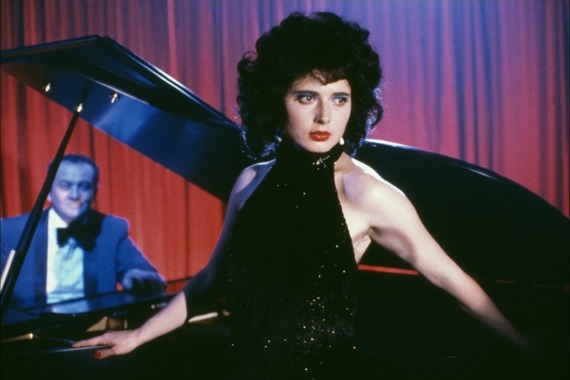I'll never forget watching David Lynch's "Blue Velvet" for the first time and thinking that Isabella Rossellini was one of the most gorgeous women I had ever seen. So when Rossellini recently admitted to feeling the pressures of ageism, what hope is there for the rest of us? Are any of us exempt from societal scrutiny? Apparently, no woman, no matter how wealthy, beautiful, or accomplished, is safe from such judgment--even if we have the power to the turn the other cheek.
Rossellini was the same woman whose 1982 contract with Lancôme made her the highest-paid model in the world. When she was dropped as the face of the cosmetic company after a 14-year tenure at age 44, Juliette Binoche, who is 12 years her junior, replaced her.
In an early July interview with The Guardian, Rossellini said the following:
"My mum told me that there is no job for women between 45 and 60, because you are in-between. You are not young enough to play the young girl, but you are also not old enough to play the matriarch, the witch, or the grandmother. So there is a period of 15 years where you're in limbo and they don't know how to hire you. Then after 60, a lot of work comes back."
In the same interview, Rossellini compared cosmetic surgery--the "new way of being misogynist" and a "new way to tell women they're ugly"--to foot binding. She went on to describe beauty standards as "impossible to be reached."
A woman's worth is far more than her physical appearance, but it can be easy for us to forget that our value extends beyond what we see in the mirror. We are living creatures and therefore worthy of love and respect. Beyond the basic fact of our inherent human dignity, we have our individual gifts that make us special. We have to constantly remind ourselves that every woman is beautiful first and foremost for her personality and spirit. Though Rossellini was reappointed as the face of Lancôme this summer, the rest of us probably will never get that kind of professional validation that we are beautiful. We don't need it, either.
Last month, I was having dinner with two of my friends when we got on the topic of beauty and aging. Though we are in our mid- to late-twenties, the question is already on our minds. One friend complained that her grandmother, who is a particularly elegant and stylish woman, recently asked if she was using moisturizer every day. It was less of a polite inquiry than an urgent order. The grandmother immediately followed the question with, "Because you need to." It's not just big companies like Lancôme perpetuating these expectations of youth and agelessness; it's our own family and friends.
Then there are our male suitors.
Another friend told me that she doesn't care what other women think of her in her bathing suit. She wants men's validation, not women's. That's the case for many women, but it shouldn't be.
Though we may want men's attention in terms of attracting a mate, we have to begin by valuing ourselves. That's the first step to creating a more equitable world between the sexes. Unfairly, the burden falls upon us once again, but we must love ourselves and encourage the women in our lives to love themselves, too. In doing this, we show men that we have value and, eventually, we will live in a world where all men value all women.
Getting there will involve broadening standards of beauty, combatting ageism, and building a culture that looks beyond superficial and transient nature of our looks. We must insist that media and corporations catch up with these practices and we can do that by wisely allocating our clicks and dollars. Hollywood and Wall Street will eventually listen because they will have no other choice.
It's a tall order, but if we women can create life, we can do anything.

